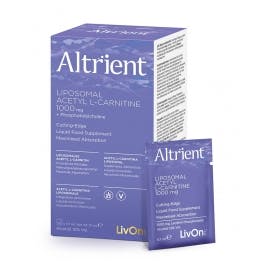Shine a light on your winter fitness
Don’t let the cold and frosty winter days derail your fitness routine. Here’s some top fitness tips on how to keep up an outdoor fitness regime when losing hours of daylight.
During the spring, summer and autumn months it’s so much easier to fit in a cycle, run or walk before or after work. However, waking up to dark mornings and losing daylight by teatime means that your outdoor fitness regime could start to feel less desirable or even unsafe during the twilight hours.
Outdoor gear for outstanding training
The great outdoors could hit you with an entirely new set of fitness challenges compared to those long dry warm summer days. The secret to continuing your training in the wild winter terrain rather than switching to the treadmill, is to invest in some winterproofed fitness gear. If you’re a runner then to keep your pace by investing in a pair of trainers with a waterproof upper membrane to withstand winter downpours. An integrated high-top sock helps prevent rainwater, snow and sludge from finding their way into your trainers keeping your feet dry and warm as you train. Next, look for a trainer with a hard, durable sole designed to grip to soft and muddy ground to minimise slips and trips that could result in injury.
Reflect and illuminate for road safety
If you’re fitting your running or cycling around your work or family schedule, then you could be training in the dark so pick trainers and clothing with reflectors for added winter road safety. And whilst talking about darkness – it might be an idea to invest in a good fitness head torch – things to consider are lumens (brightness), burn time (time before recharging), range (length of beam) and weight. As a rough guide aim for 300+ lumens, 2-3 hours minimum burn time, 70+ metres range and around 100g weight. Selecting a head torch that is rechargeable helps to save money on batteries but also keeps your light source more planet friendly.
Toasty hands for extra pedal power
If you are more of a cyclist than a runner then it’s time to focus on your fingers as these handlebar digits could take a frosty hit on your winter cycle route. Thermal cycling gloves with extra grip and reflectors are an essential bit of winter cycling kit. For an extra layer of toasty comfort invest in some thermal hand warmers, these self-adhesive pads provide 8-hours of glove comfort to help extend your pedal time.
Comfort carbs for winter metabolism
Food is key for fuelling any training regime and without adequate carbohydrates your body could struggle to produce all the heat and energy needed to sustain and power up your outdoor winter training. Cutting back on carbs is a familiar strategy for summer weight management but if you are training outdoors then you need to be mindful that winter training may require a healthy portion of comfort carbs. It’s still a good idea to avoid refined carbs (white bread, white rice, pasta, cakes, biscuits, croissants and pastries), sugary snacks and sugary drinks as these foods tend not to support blood sugar balance and may create energy highs followed by energy slumps. Including plenty of fresh fruits and vegetables and complex carbs such as lentils, pulses and wholegrains (wholemeal bread, wholegrain pasta, brown rice, red rice, quinoa, oats and rye) helps to deliver sustained energy and winter comfort.
Get your thyroid checked
It’s not unusual to hit a few low days during the winter months which could make you want to hang up your trainers and head into a deep winter hibernation. Hopefully that’s just a fleeting feeling that gets entertained on days when the weather is particularly hardcore. However, if these feelings linger and become accompanied by cold hands and feet, feeling the cold, fatigue, dry skin, weight gain, muscle weakness and hair loss then it’s advisable to head to your GP for a thyroid check. The thyroid produces the hormone thyroxin which helps support metabolism and energy production. The minerals selenium and iodine help support normal thyroid function. Foods rich in selenium include Brazil nuts, chia seeds, flax seeds, sunflower seeds, tuna and tofu. Whereas iodine is found in seaweed, cod, milk and turkey. Including these foods in your diet is important for all athletes with an intense training schedule.
Converting carbs into cellular energy
Eating the right carbs is just one part of the energy equation. During the process of digestion sugar and starch are released from foods containing carbohydrates. Once absorbed into the body these nutrients enter cells where enzymes and cellular components convert them into units of energy called ATP in a complex series of reactions collectively called metabolism. However, these enzymes require oxygen and certain nutrients in order to work efficiently which is why magnesium, iron, manganese and vitamins B1, B2, B3, B5, B6 and B12 help support normal energy yielding metabolism.
B-vitamins are found naturally in foods that are unrefined such as complex carbs and wholegrains - a perfect natural synergy. Magnesium, iron and manganese are found in green leafy vegetables, nuts, seeds and oats. Many of these nutrients are also included in the Altrient Liposomal Vitamin B and Mineral Complex, a highly absorbable supplement which could help top-up dietary levels of some of the essential nutrients required for metabolism during intense training regimes.
Make Acetyl L-carnitine your winter training BFF
Getting your energy up so you can feel motivated to brave the winter weather and step outdoors for your training sessions can be hard to manifest when your feeling tired and tucked up in the cosy indoors. A natural substance called carnitine could be the answer to helping you off the sofa and into your trainers. Carnitine is a naturally occurring substance derived from an amino acid and found in almost all cells in the body particularly in the heart and skeletal muscles which utilise fat for energy. Carnitine levels naturally decline as we age so it’s important to pay attention to the nutrient the older you get!
Carnitine plays a crucial role in the production of energy in the mitochondria - the powerhouses of the cells, where it transports long-chain fatty acids to be burned or ‘oxidised’ to produce energy. This power nutrient is found naturally in good levels in red meat and dairy and small amounts are also present in wheat, avocados, asparagus, tempeh and peanut butter. If these foods aren’t in your daily diet or if you are vegan or vegetarian, then supplementing with a liposomal form of Acetyl L-carnitine could be a recommended addition to your winter training nutrition support.
Susie Debice BSc HONs, Dip ION
Food Scientist and Nutritional Therapist




